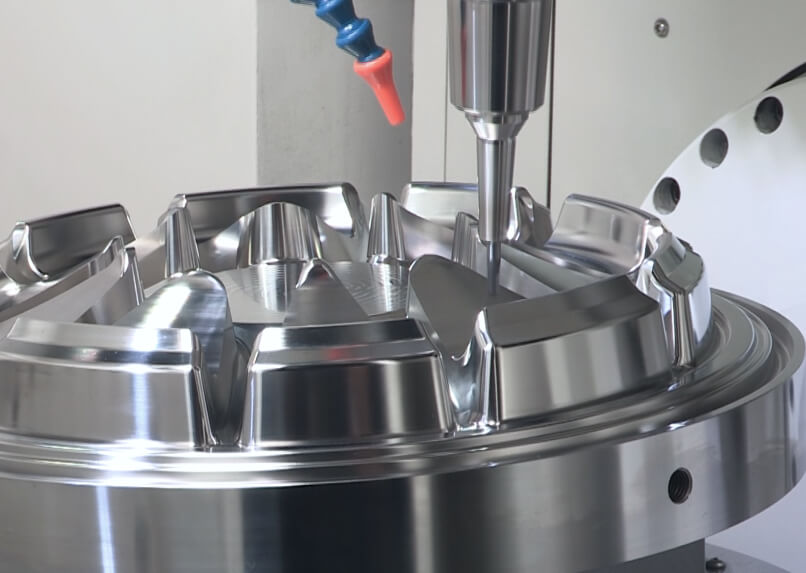In the world of manufacturing, precision is critical. Whether you’re producing intricate medical devices or aerospace components, achieving the right tolerances in CNC Machining Services is essential to ensure that parts fit and function as intended. This blog explores the importance of tolerances in CNC machining, the factors that influence them, and how modern advancements help achieve unparalleled accuracy.
What Are Tolerances in CNC Machining?
Tolerances refer to the permissible variations in a part’s dimensions. They define how much a measurement can deviate from its nominal value without compromising the part’s functionality. For example, a tolerance of ±0.01 mm means that a dimension can vary by 0.01 mm above or below the specified measurement.
Manufacturers offering china cnc milling service, precision aluminum extrusion, and custom plastic fabrication must adhere to precise tolerances to meet customer specifications and industry standards.
Why Are Tolerances Important?
Tolerances directly impact the performance, reliability, and safety of the final product. Here’s why they matter:
- Interchangeability: Parts with precise tolerances ensure seamless assembly and compatibility.
- Functionality: Tight tolerances are critical in industries such as aerospace, where even slight deviations can lead to failures.
- Cost Efficiency: Achieving the right balance between tight tolerances and production costs ensures affordable and efficient manufacturing.
Types of Tolerances
CNC machining involves various types of tolerances:
- Dimensional Tolerance
Specifies allowable variations in linear or angular dimensions, such as length, width, and height. - Geometric Tolerance
Covers the shape, orientation, and position of features, such as flatness, roundness, and parallelism. - Surface Finish Tolerance
Dictates the smoothness of the surface, which is particularly important for Injection Molded Surface Finishes and surface finishing services.
Factors Influencing Tolerances in CNC Machining
Achieving precise tolerances depends on several factors:
- Material Selection
Different materials behave differently during machining. Metals like aluminum and titanium are easier to machine to tight tolerances than some plastics. Manufacturers offering plastic fabrication services and custom injection molding must consider material-specific properties. - Machine Capabilities
Advanced CNC machines, such as affordable CNC router systems, are equipped with multi-axis capabilities, high-speed spindles, and precision tools to achieve tighter tolerances. - Tooling and Cutting Parameters
The choice of tools, cutting speed, and feed rate can significantly impact the accuracy of the machining process. - Environmental Factors
Temperature fluctuations and vibration can cause material expansion or contraction, affecting tolerances. - Design Complexity
Intricate designs may require advanced techniques, such as injection molding prototyping, to achieve the desired tolerances.
How to Achieve High Precision in CNC Machining
1. Leveraging Advanced Technology
Modern CNC systems, like those used in CNC Machining Services and china cnc milling service, are equipped with sophisticated software that allows for detailed programming and real-time monitoring. This ensures consistent quality and minimal deviations.
2. Material Optimization
Selecting the right material for the job is crucial. For example, precision aluminum extrusion is often used in aerospace and automotive industries for its lightweight and machinability properties.
3. Tool Calibration and Maintenance
Regular calibration and maintenance of tools help maintain precision, ensuring that parts meet their specified tolerances.
4. Secondary Processes
Processes like surface finishing services enhance the dimensional accuracy and surface quality of machined parts. This is especially important for Injection Molded Surface Finishes, where smoothness and uniformity are essential.
5. Collaboration with Experts
Partnering with experienced manufacturers who specialize in value-added manufacturing ensures that your parts meet the required tolerances efficiently and cost-effectively.
Balancing Tight Tolerances and Cost
While achieving tight tolerances is essential for certain applications, it can also increase production costs. Here’s how to strike the right balance:
- Define Tolerances Based on Application
Determine which dimensions require tight tolerances and which can have more relaxed specifications. For example, critical components in aerospace may need stricter tolerances than decorative parts produced through custom plastic fabrication. - Choose Cost-Effective Materials
Opt for materials that are easier to machine, ensuring high precision without excessive costs. - Optimize Design for Manufacturability
Simplify designs to reduce the need for complex machining processes, making affordable machining a viable option.
Industries That Rely on High-Precision Tolerances
Aerospace
In the aerospace sector, parts must adhere to tight tolerances to ensure safety and performance. Precision aluminum extrusion and CNC machining are vital in this industry.
Medical Devices
The medical industry demands precision for components like implants and surgical instruments. Injection molding prototyping helps achieve accurate dimensions for these critical applications.
Automotive
For the automotive industry, tight tolerances ensure that components such as engine parts and gear systems function flawlessly.
Electronics
In electronics manufacturing, precise tolerances are crucial for connectors, circuit boards, and enclosures, making plastic fabrication services indispensable.
Conclusion
Tolerances are at the heart of CNC Machining Services, dictating the quality, functionality, and reliability of manufactured parts. By understanding the factors that influence tolerances and leveraging modern machining technologies, manufacturers can deliver high-precision components across various industries.
Whether it’s china cnc milling service, Injection Molded Surface Finishes, or custom injection molding, achieving the right tolerances ensures customer satisfaction and long-term success. By balancing precision with cost-efficiency, manufacturers can stay competitive in today’s dynamic market.









